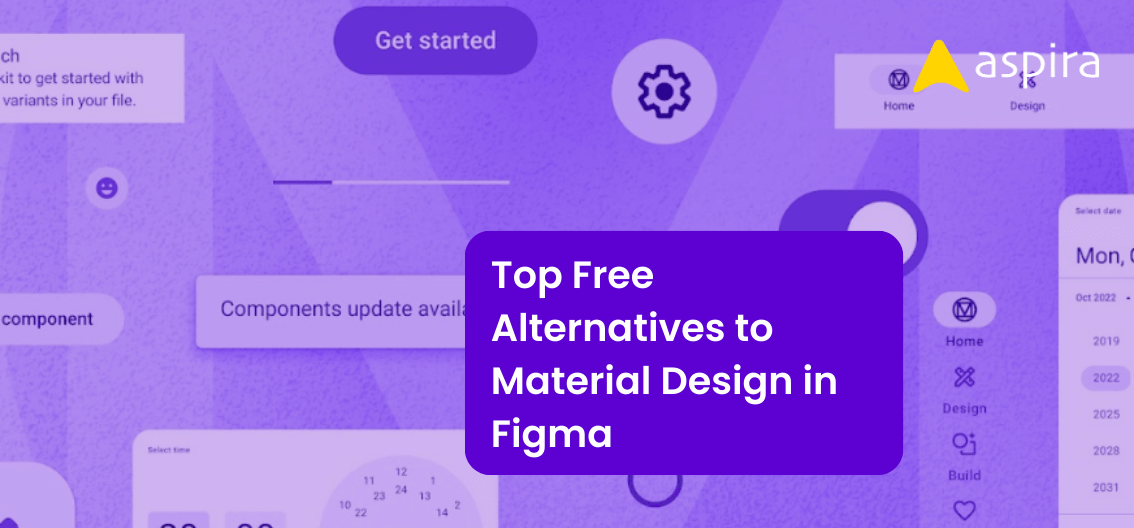UX Design - Mentor & Author.
19 Jul, 2023

As technology continues to rapidly evolve, the demand for UI/UX designer skills is growing at an unprecedented rate. A career in UX/UI design can be incredibly rewarding, yet also challenging. Whether you are new to the field or seeking to enhance your skills, it is essential to build a solid foundation in these crucial skills. By mastering these essential skills, you can create digital products that not only look aesthetically pleasing but are also functionally effective, catering to the unique needs of your users.
In this article, we will delve into the essential skills required to build a thriving career in UI/UX design Skills. Regardless of your experience level, we will provide you with the necessary knowledge and tools to excel in this dynamic and ever-changing field. So, let’s start
Empathy For UI UX Designer Skills
Empathy is an essential skill for becoming a successful UX designer. By putting yourself in the shoes of the user, you can see things from their perspective, enabling you to create solutions that meet their needs while also identifying potential issues. Learning to empathize with users is a skill that develops over time, but it is crucial to feel what they feel to shed light on what will be most beneficial for them.
To begin implementing empathy into your daily practice, speaking directly with users is one of the best ways to start. This can be achieved through surveys, user interviews, or usability tests, and it allows you to gain a deeper understanding of their needs and experiences. By doing so, you can better design products that not only look great but also deliver optimal user experiences.
Visual Communication for UI UX Designer skills
Visual communication skills are a vital component of UX design. As a UX designer, you must possess the ability to create clickable designs, establish effective visual hierarchy, and leverage typography and color theory to convey a message efficiently. Written instructions can be challenging to understand, so minimizing the need for them is essential. Because a large percentage of the population are visual learners, it is crucial to be able to communicate visually, allowing you to convey your message to a broader audience regardless of language barriers.
Communication skills are also a critical part of UX design, as UX designers must be able to articulate their ideas and listen to feedback from clients, stakeholders, and team members. While mastering these skills may seem daunting, those who have worked in development or other collaborative environments may have already developed many of these skills, making it easier to excel in the field of UX design.
Problem-Solving
As UX designers, our primary goal is to create products that address users’ needs and pain points. This requires a deep understanding of users’ problems and an ability to develop innovative solutions to solve them. To do this effectively, we must be skilled in identifying pain points and defining user problems. Additionally, we need to be able to recognize potential areas of friction within a design and iterate on improvements based on user behavior.
To develop these skills, we can start by observing and analyzing products we use in our daily lives. By doing so, we can identify areas where improvements could be made to create a more user-friendly experience. As we practice this approach, we can become more adept at defining user problems and creating solutions that meet users’ needs. Ultimately, the ability to solve users’ problems with creative and effective solutions is what sets successful UX designers apart.

Collaboration
In the field of UX/UI design, collaboration is essential for success. By working closely with users, clients and stakeholders, you can ensure that both business goals and user expectations are met. During the research and testing phases, you’ll collaborate with participants to gain insight into their needs and goals. As you move into the design process, it’s important to keep the user and business goals in mind and collaborate with other UX designers to come up with effective solutions. Collaboration is also crucial with developers to ensure that the design is implemented correctly in the final product. By actively collaborating throughout the design process, you can create user-centered and business-driven solutions that truly meet the needs of all users and stakeholders.
Curiosity and Desire to Learn
UX/UI design is a constantly evolving field where we can learn something new from every project, user, and UI design. As the industry advances with new principles, tools, trends, platforms, and devices, it’s crucial to keep up with the latest developments. For instance, we must now consider the dimensions and specifications of various screens, including foldable phones that did not exist a decade ago.
To effectively solve user problems, it’s essential to stay abreast of the latest solutions and design trends. We should treat every project as a learning opportunity and seize it with enthusiasm. Reading design books, articles, following industry experts, watching design videos, and exploring online resources can help us acquire new knowledge and skills. The ability to learn is more important than mastering a specific tool, and we should always be curious and open to learning new things.
Conclusion
In conclusion, a successful career in UX/UI design requires a solid foundation of essential skills, including empathy, visual communication, problem-solving, collaboration, and a curiosity and desire to learn. These skills are critical for creating digital products that not only look aesthetically pleasing but are also functionally effective, catering to the unique needs of users. By putting yourself in the user’s shoes, establishing effective visual hierarchy, developing innovative solutions, actively collaborating with stakeholders, and continuously learning, you can excel in this dynamic and ever-changing field. Whether you are new to UX/UI design or seeking to enhance your skills, mastering these essential skills is key to building a thriving career in this rapidly growing field.


